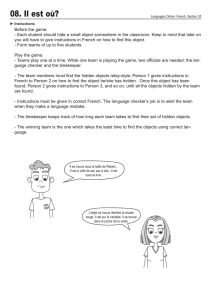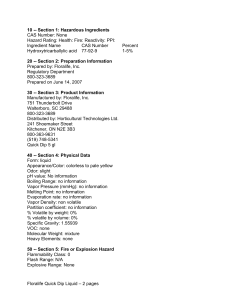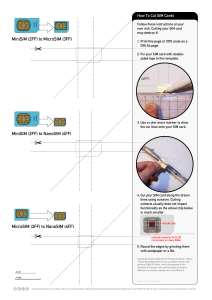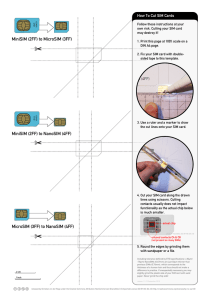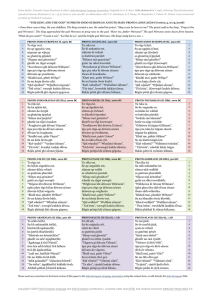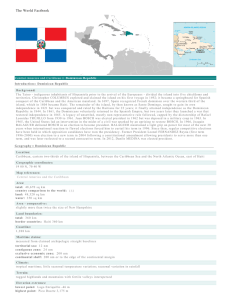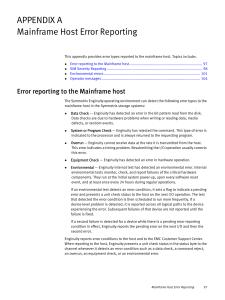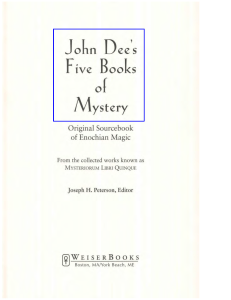Sum Autora: Concepción Cabrillana 2008 1ª Revisión: José Miguel
Anuncio
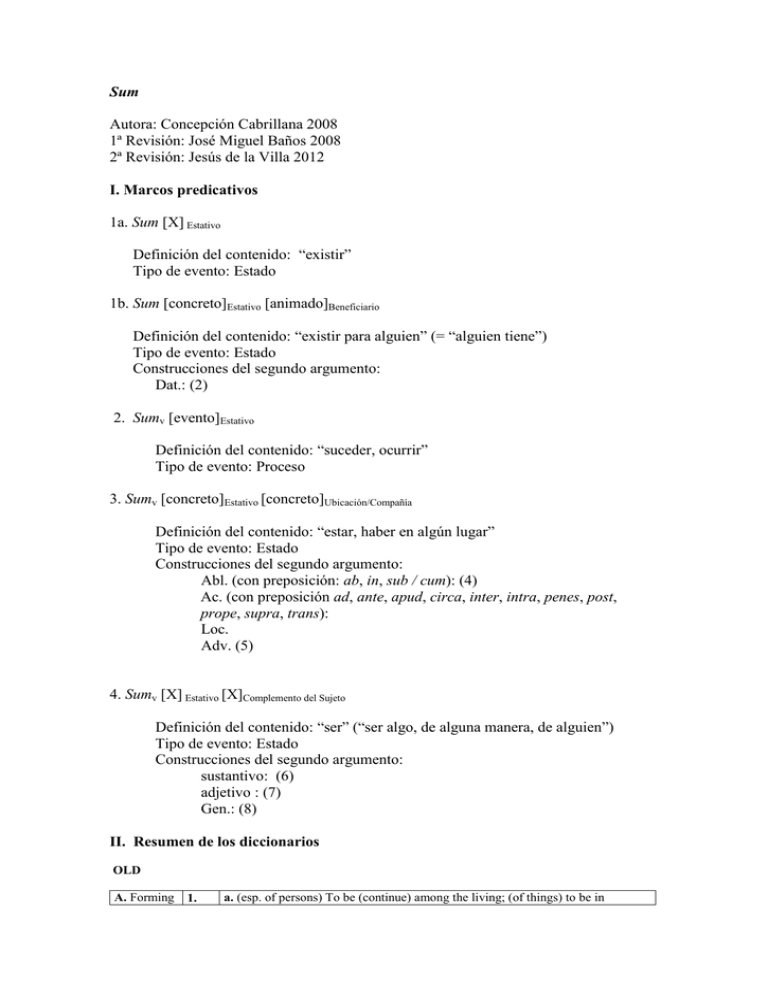
Sum Autora: Concepción Cabrillana 2008 1ª Revisión: José Miguel Baños 2008 2ª Revisión: Jesús de la Villa 2012 I. Marcos predicativos 1a. Sum [X] Estativo Definición del contenido: “existir” Tipo de evento: Estado 1b. Sum [concreto]Estativo [animado]Beneficiario Definición del contenido: “existir para alguien” (= “alguien tiene”) Tipo de evento: Estado Construcciones del segundo argumento: Dat.: (2) 2. Sumv [evento]Estativo Definición del contenido: “suceder, ocurrir” Tipo de evento: Proceso 3. Sumv [concreto]Estativo [concreto]Ubicación/Compañía Definición del contenido: “estar, haber en algún lugar” Tipo de evento: Estado Construcciones del segundo argumento: Abl. (con preposición: ab, in, sub / cum): (4) Ac. (con preposición ad, ante, apud, circa, inter, intra, penes, post, prope, supra, trans): Loc. Adv. (5) 4. Sumv [X] Estativo [X]Complemento del Sujeto Definición del contenido: “ser” (“ser algo, de alguna manera, de alguien”) Tipo de evento: Estado Construcciones del segundo argumento: sustantivo: (6) adjetivo : (7) Gen.: (8) II. Resumen de los diccionarios OLD A. Forming 1. a. (esp. of persons) To be (continue) among the living; (of things) to be in a complete predicate without adjuncts existence b. (in pf. tenses) to have been (i.e. exist no longer), be a thing to the past 2. To have physical being, exist, be real (sim. of actions) to have physical reality a. (expressing the fact of a thing’s existence in a particular place, circumstances, 3. etc.) To be, be found, occur b. (of abst. or non-material things) c. (indicating avaliability for a purpose) d. si ego non fuissem, nisi ego fuissem, if it had not been for me (and sim.) 4. (in same sense as prec., introducing a fresh stage in narrative, etc., also an item in an enumeration) a. (of a state of affairs, condition or sim.) To be present, obtain, exist 5. b. (of relationships, dealings, etc.) c. quid (tibi) est? what is the matter (with you)? d. quid me (mihi, de me) futurum est? what is to become of me? (and sim.) a. (forming elliptical expressions w. rel. or advl. cls.): est qui (quod), sunt qui, etc. 6. (There is) someone (who), something (which), etc.; also est quibus b. est ubi (quo, unde), there is a place, etc., in (to, from) which; est quatenus, there is a limit to which c. est ubi, there is a time (are times) when; sim. est cum d. est quod (w. subj.) there is cause (to); sim. est cur, etc. a. est ut, It is the case that; sim. w. acc. and inf. 7. b. (fore or futurum esse ut in periphrases; sim. futurum fuisse ut in the apodosis of an unfulfilled condition in indir. sp.) a. (w. pron. as subj) To be the actual situation, be the case; (non) est, that is (not) 8. so b. esto, (in conceding a situation) so be it!; (in arguments, in making a concession or waiving an objection) suppose that it is so! all right!, etc. c. to be properly so 9. (w. inf.) To exist as a possibility, to be possible or allowable a. (w.dat.) To exist as the property, attribute, etc. (of a particular person, etc.): 10. b. a. (of material property, possessions, etc.) c. (of physical or abstract qualities, attributes, etc.) d. (of fortune, one’s lot, etc.) B. As the 11. regular copula linking subject and complement 12. a. (w. local adv., advl. phr., etc.) To be, be present, situated, etc. (in a particular place) b. (w. advs. or advl. phrs. expr. non-physical location) c. (pf. app. implying motion to, and subsequent experience of, a place, etc.) to have been (to) a. (w. advl. phr.) To be (in a particular condition, situation, etc.) b. (w. abl.) (w. advs. of manner): a. (of persons or things, w. ref. to condition, behaviour, etc.) 13. b. (of circumstances; esp. impers.) a. (w. adj.) To be (of a specified description) 14. b. (w. satis, abunde, and sim. advs.) c. (w. advl. phrs.) d. (w. noun cl., inf., etc., as subj.) (in further descriptive cls. w. noun in oblique case as complement): a. (in gen.) 15. b. (in dat.) c. (in abl.) d. (in acc.) a. (w. noun in same case as subj.) To be (a given kind of person or thing); (also w. 16. substance, etc., of which a thing is made) b. (w. inf. or noun cl. as subj.) a. (w. noun., pron., etc., identifying the subject with the complement) To be (the 17. person or thing in question) b. (w. subj. unexpressed, or to be supplied from the context) c. (in impersonal statements of time, season, etc.) a. (used in expressing an equivalent) To be in effect, be tantamount to 18 b. (of words) to be in meaning c. (hoc est, id est, and sim., used to introduce a more accurate or explicit equivalent to a previous expression) 19. (w. numerals or sim.) To be equal to, make up (a given amount) a. (w. verbal forms which are still to some extent felt as complements): (w. fut. pple.) b. (w. gdve.) 21. as an auxiliary verb Gaffiot I. Verbe substantif II. Verbe copulatif 1. Être, exister / “Il’y a” 2. Être dans un lieu, dans une situation, etc. a. non licet quemquam Romae esse qui b. esse cum aliquo c. esse in aliquo d. esse cum aliquo 3. Être réellement a. est ut dicis (“c’est bien, comme tu dis”) b. formules: esto; uerum esto (“soit; mais admettons”) c. est ut + subj. (“il est réel que, il arrive vraiment que”) d. est ubi, est cum, est quod, est cur e. [avec inf.] il est possible de 4. [avec dat.] appartenir è, s’appliquer à 1. avec un attribut 2. avec gén. a. gen. d’espèce, emploi arch. b. gen. Possessif c. gen. de qualité d. gen. de prix 3. avec abl. de prix 4. avec dat. ou ad 5. tour de 2 datifs III. Ejemplos (1) Si non sint fata, nesciri futura (“si no existen los hados, no se puede conocer el futuro”, Sen. suas. 3,3). (2) Illis quoque filias sorores coniugesque esse (“también ellos tenían hijas, hermanas y esposas”, Liv. 3,50,7). (3) Si bellum cum Veientibus foret (“si tenía lugar una guerra con los Veyos”, Liv. 1,26,1). (4) Vastae tum in his locis solitudines erant (“en aquellos lugares había extensos terrenos solitarios”, Liv. 1,4,6). (5) Vbi nunc ficus Ruminalis est (“donde ahora está la higuera Ruminal”, Liv. 1,4,5). (6) a si uos uiri estis (“si vosotros sois hombres”, Liv. 1,58,8). b Ego sum ille Amphitruo (“yo soy aquel Anfitrión”, Plaut. Amph. 861). c Finis insequendi hostis Poenis flumen Trebia fuit (“el río Trebia constituyó para los cartagineses el fin de la persecución de sus enemigos”, Liv. 21,56,7). (7) Ne gratuita praeterita parricidia essent (“para que no fueran inútiles los anteriores parricidios”, Liv. 1,47,2) (8) a unde cum tam parui operis munitio esset (“a pesar de que por ese lado la edificación no hubiese sido tan laboriosa”, Liv. 26,42,9). b Casa illa conditoris est nostri (“aquella casa es de nuestro fundador”, Liv. 5,53,8).
